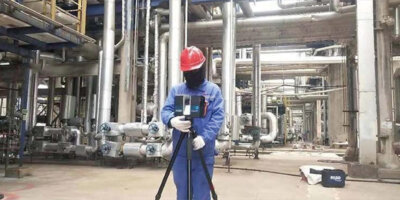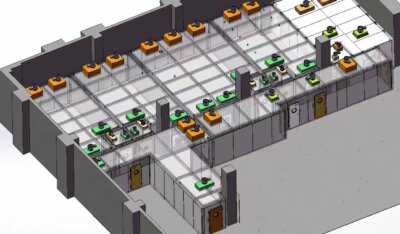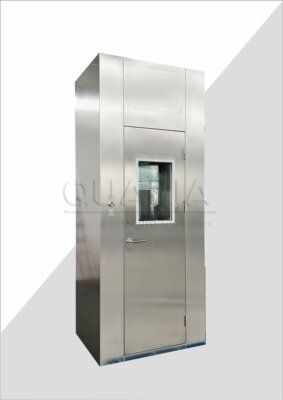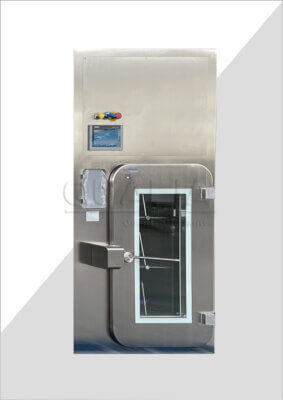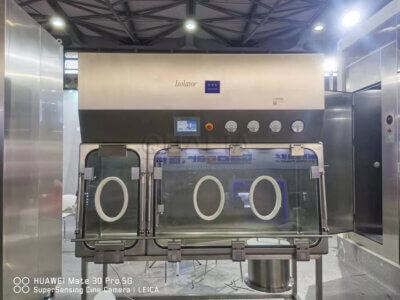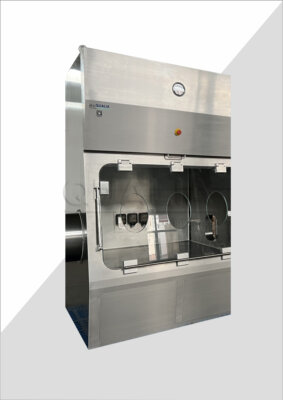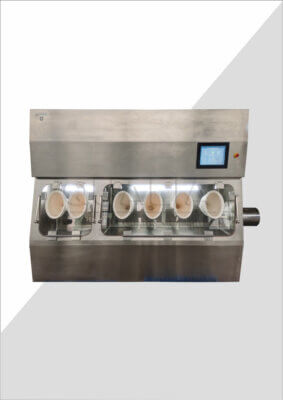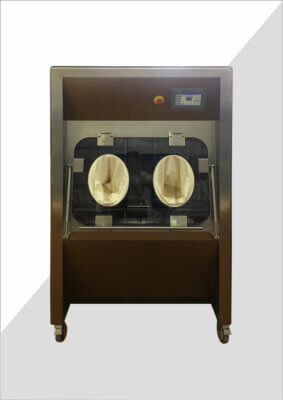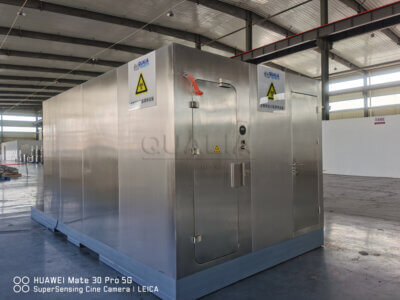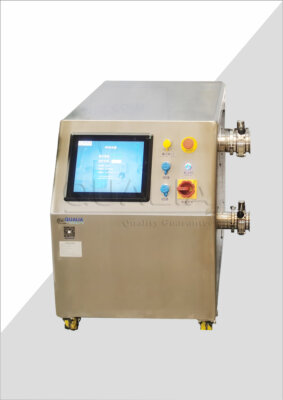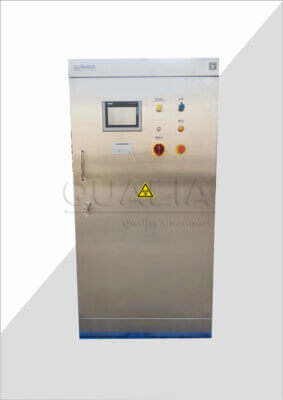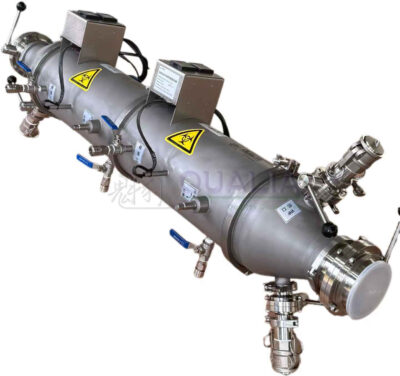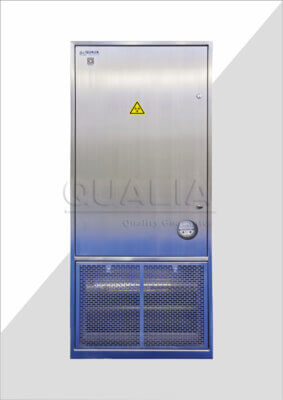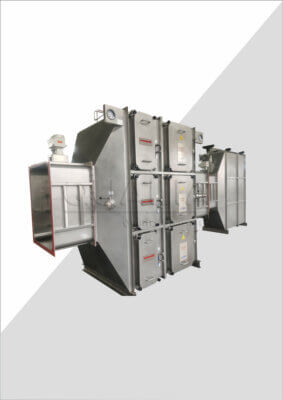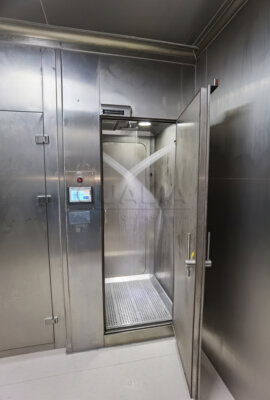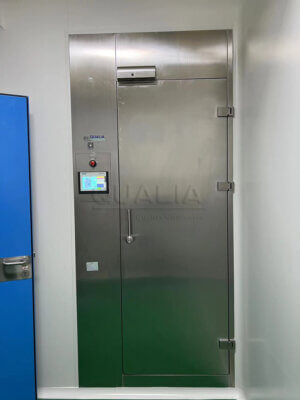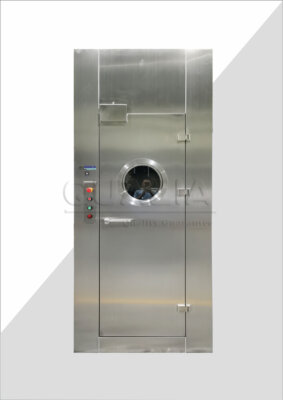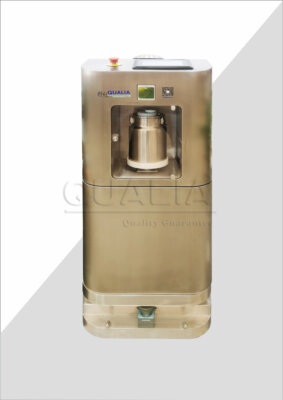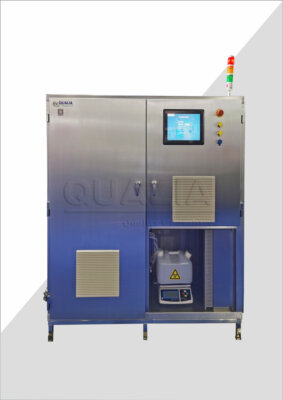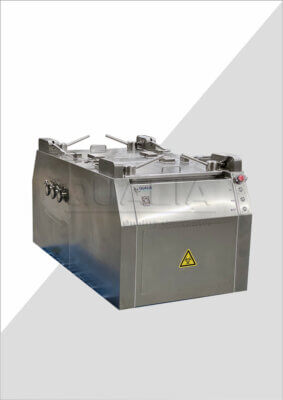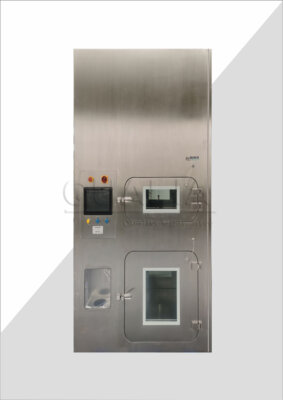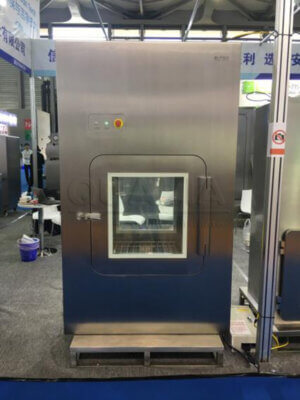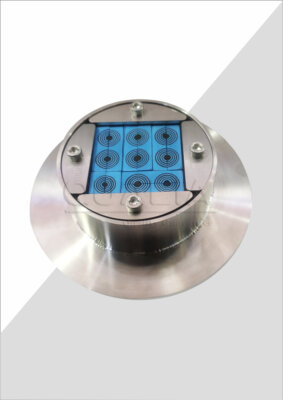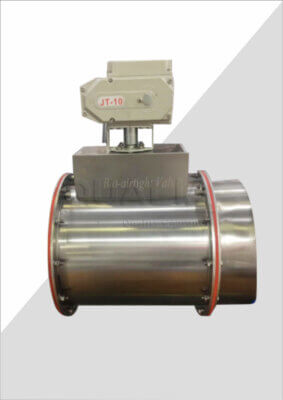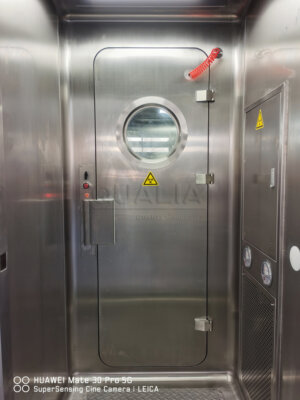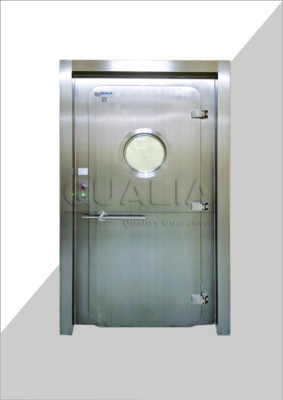In the ever-evolving world of pharmaceutical manufacturing, maintaining the highest standards of sterility and contamination control is paramount. As the industry continues to advance, so too do the technologies and systems designed to ensure product safety and quality. One such innovation that has revolutionized aseptic processing is the Closed Restricted Access Barrier System, or cRABS. This sophisticated system has become an integral part of many pharmaceutical production facilities, offering unparalleled protection against contamination. However, the effectiveness of a cRABS is heavily dependent on its proper installation and commissioning. This is where expert services come into play, ensuring that these critical systems are set up and operational to the highest standards.
The installation and commissioning of a cRABS is a complex process that requires specialized knowledge, precision, and attention to detail. From initial site preparation to final validation, each step is crucial in establishing a system that will consistently deliver the sterile environment necessary for pharmaceutical production. Expert services in this field bring together a wealth of experience, technical expertise, and industry-specific knowledge to navigate the intricacies of cRABS setup. These services not only ensure compliance with stringent regulatory requirements but also optimize the system's performance for maximum efficiency and reliability.
As we delve deeper into the world of cRABS installation and commissioning services, we'll explore the various aspects that make these expert services indispensable in the pharmaceutical industry. From the initial planning stages to ongoing maintenance and support, we'll uncover the critical role these services play in safeguarding product integrity and patient safety. Whether you're a pharmaceutical manufacturer looking to upgrade your facilities or a professional seeking to understand the nuances of aseptic processing technologies, this comprehensive guide will provide valuable insights into the importance and intricacies of expert cRABS installation and commissioning services.
Expert cRABS installation and commissioning services are essential for ensuring the optimal performance and regulatory compliance of Closed Restricted Access Barrier Systems in pharmaceutical manufacturing environments.
What are the key components of a cRABS system?
At the heart of aseptic processing in pharmaceutical manufacturing lies the Closed Restricted Access Barrier System (cRABS). This sophisticated system is designed to create a highly controlled environment that minimizes the risk of contamination during the production of sterile pharmaceutical products. Understanding the key components of a cRABS system is crucial for appreciating the complexity of its installation and commissioning process.
A cRABS system typically consists of several critical elements working in harmony to maintain a sterile environment. These include advanced air filtration systems, physical barriers, transfer ports, and sophisticated monitoring and control systems. Each component plays a vital role in creating and maintaining the aseptic conditions necessary for pharmaceutical production.
The cornerstone of a cRABS system is its advanced air filtration technology. This usually involves a combination of High-Efficiency Particulate Air (HEPA) filters and unidirectional airflow systems. These work together to remove contaminants from the air and create a constant flow of clean air within the workspace. The physical barriers, often made of transparent materials like glass or acrylic, provide a clear separation between the operator and the critical aseptic zone. Transfer ports and rapid transfer ports (RTPs) allow for the safe introduction of materials and equipment into the sterile environment without compromising its integrity.
QUALIA's cRABS systems incorporate state-of-the-art HEPA filtration technology and unidirectional airflow design, ensuring a consistent ISO 5 (Class 100) environment within the critical work zone.
To fully appreciate the complexity of a cRABS system, let's look at a breakdown of its key components:
| Component | Function | Importance |
|---|---|---|
| HEPA Filters | Remove airborne particles | Critical for maintaining air cleanliness |
| Unidirectional Airflow | Creates consistent air movement | Prevents stagnant air and particle accumulation |
| Physical Barriers | Separate operators from critical areas | Essential for contamination prevention |
| Transfer Ports | Allow safe material transfer | Maintain sterility during material introduction |
| Monitoring Systems | Track environmental conditions | Ensure continuous compliance with standards |
The interplay between these components creates a robust system that can maintain the highest levels of sterility required in pharmaceutical manufacturing. However, the effectiveness of these components relies heavily on proper installation and commissioning, highlighting the importance of expert services in this field.
How does the installation process for a cRABS system unfold?
The installation of a Closed Restricted Access Barrier System (cRABS) is a meticulous process that requires careful planning and execution. This critical phase sets the foundation for the system's performance and longevity, making it essential to understand the steps involved and the expertise required at each stage.
The installation process typically begins with a comprehensive site assessment and preparation. This involves evaluating the existing infrastructure, identifying any potential challenges, and making necessary modifications to accommodate the cRABS. Expert installers will consider factors such as room layout, utility connections, and environmental conditions to ensure optimal placement and functionality of the system.
Following site preparation, the actual installation of the cRABS components takes place. This is a highly specialized task that demands precision and technical expertise. The physical structure of the cRABS, including its barriers and access points, must be assembled and secured according to exact specifications. Concurrently, the complex network of air handling and filtration systems is integrated, ensuring seamless operation with the existing facility infrastructure.
QUALIA's expert installation teams employ advanced 3D modeling and virtual reality technologies to plan and visualize the cRABS installation, minimizing on-site disruptions and ensuring optimal system integration.
The intricacy of the cRABS installation process is best illustrated through a breakdown of its key stages:
| Installation Stage | Description | Critical Considerations |
|---|---|---|
| Site Assessment | Evaluate facility and plan installation | Space requirements, utilities, environmental factors |
| Infrastructure Preparation | Modify existing structures if necessary | Flooring, ceiling, utility connections |
| Component Assembly | Erect physical barriers and structures | Precision alignment, material integrity |
| Air Handling Integration | Install and connect filtration systems | Airflow patterns, filter efficiency |
| Control System Setup | Install monitoring and control equipment | Integration with facility systems, user interface |
Each of these stages requires specialized knowledge and skills, highlighting the importance of expert installation services. The precision and attention to detail during installation directly impact the system's ability to maintain a sterile environment, making it a crucial phase in the implementation of a cRABS system in pharmaceutical manufacturing.
What does the commissioning process entail for a cRABS system?
The commissioning process for a Closed Restricted Access Barrier System (cRABS) is a critical phase that bridges the gap between installation and operational readiness. This comprehensive process ensures that all components of the system are functioning as intended and that the cRABS as a whole meets the stringent requirements of pharmaceutical manufacturing environments.
Commissioning typically begins with a series of functional tests that evaluate each component of the cRABS independently. These tests assess everything from the integrity of physical barriers to the performance of air handling systems. Following individual component testing, the system undergoes integrated performance testing to ensure all parts work harmoniously to maintain the required sterile conditions.
A crucial aspect of commissioning is the validation of environmental parameters. This includes rigorous testing of air quality, particle counts, and pressure differentials within the cRABS. Expert commissioning services employ sophisticated monitoring equipment and testing protocols to verify that the system consistently maintains the required ISO 5 (Class 100) environment within the critical work zone.
Expert commissioning services for cRABS systems include comprehensive particle count testing and airflow visualization studies to ensure compliance with ISO 14644-1 standards for cleanroom and associated controlled environments.
The commissioning process for a cRABS system can be broken down into several key stages:
| Commissioning Stage | Purpose | Key Activities |
|---|---|---|
| Component Testing | Verify individual part functionality | Barrier integrity checks, filter efficiency tests |
| Integrated System Testing | Ensure cohesive operation | Airflow pattern studies, pressure cascade verification |
| Environmental Validation | Confirm sterile conditions | Particle count measurements, microbial testing |
| Alarm and Safety Checks | Verify system safeguards | Simulated fault conditions, response time assessments |
| Documentation | Record system performance | Generate commissioning reports, establish baseline data |
The thoroughness of the commissioning process is crucial for ensuring that the cRABS system not only meets regulatory requirements but also operates at peak efficiency. Expert commissioning services bring the necessary experience and technical knowledge to navigate this complex process, ultimately providing assurance that the cRABS is ready for pharmaceutical production.
Why are expert services crucial for cRABS installation and commissioning?
The installation and commissioning of a Closed Restricted Access Barrier System (cRABS) is a highly specialized process that demands a level of expertise far beyond standard equipment setup. Expert services in this field bring a wealth of knowledge, experience, and technical proficiency that is crucial for ensuring the optimal performance and regulatory compliance of these complex systems.
One of the primary reasons expert services are indispensable is their comprehensive understanding of regulatory requirements. The pharmaceutical industry is heavily regulated, with stringent standards governing the production of sterile medications. Expert service providers are well-versed in these regulations, ensuring that every aspect of the cRABS installation and commissioning process aligns with current Good Manufacturing Practice (cGMP) guidelines and other relevant industry standards.
Moreover, expert services bring a depth of experience that allows them to anticipate and address potential challenges before they become issues. From navigating site-specific constraints to optimizing system performance for particular product types, these specialists can tailor their approach to meet the unique needs of each facility. This level of customization is critical in maximizing the efficiency and effectiveness of the cRABS system.
cRABS installation and commissioning services provided by expert teams can reduce installation time by up to 30% and minimize post-installation issues by implementing best practices and leveraging industry-specific knowledge.
The value of expert services in cRABS installation and commissioning can be illustrated through the following table:
| Aspect | Benefit of Expert Services | Impact on cRABS Performance |
|---|---|---|
| Regulatory Compliance | Ensure adherence to cGMP and ISO standards | Minimizes risk of regulatory non-compliance |
| System Optimization | Tailor installation to facility needs | Enhances operational efficiency |
| Problem Prevention | Anticipate and address potential issues | Reduces downtime and maintenance costs |
| Technology Integration | Seamless incorporation of advanced features | Maximizes system capabilities |
| Training and Support | Comprehensive operator training | Ensures proper system utilization |
By leveraging the specialized knowledge and skills of expert service providers, pharmaceutical manufacturers can ensure that their cRABS systems are installed and commissioned to the highest standards. This not only guarantees optimal performance but also provides peace of mind in knowing that the system is fully compliant with all relevant regulations and capable of maintaining the sterile conditions crucial for pharmaceutical production.
How do expert services ensure regulatory compliance during cRABS setup?
Ensuring regulatory compliance is a paramount concern in the pharmaceutical industry, particularly when it comes to aseptic processing environments. Expert services play a crucial role in navigating the complex landscape of regulations and standards that govern the installation and commissioning of Closed Restricted Access Barrier Systems (cRABS).
These specialized service providers bring an in-depth understanding of regulatory requirements from various authorities, including the FDA, EMA, and WHO. They are well-versed in Good Manufacturing Practice (GMP) guidelines, ISO standards, and industry-specific regulations that impact cRABS systems. This knowledge is applied at every stage of the installation and commissioning process to ensure that the final setup meets or exceeds all relevant compliance standards.
One of the key ways expert services ensure regulatory compliance is through meticulous documentation. They maintain detailed records of every step of the installation and commissioning process, creating a comprehensive audit trail that demonstrates adherence to regulatory requirements. This documentation is crucial not only for immediate compliance but also for future inspections and audits.
Expert cRABS installation and commissioning services implement a risk-based approach to validation, aligning with FDA guidance on process validation to ensure a scientifically sound and compliant setup.
The role of expert services in ensuring regulatory compliance can be better understood through the following table:
| Regulatory Aspect | Expert Service Action | Compliance Outcome |
|---|---|---|
| GMP Guidelines | Implement design and operational controls | Ensures cRABS meets cGMP requirements |
| ISO Standards | Conduct particle count and airflow studies | Verifies ISO 5 (Class 100) environment |
| Validation Protocol | Develop and execute comprehensive IQ/OQ/PQ | Demonstrates system performance and reliability |
| Risk Assessment | Perform FMEA for critical cRABS components | Identifies and mitigates potential failure modes |
| Continuous Monitoring | Implement real-time environmental monitoring | Enables ongoing compliance verification |
By leveraging their expertise in regulatory affairs, these specialized service providers ensure that every aspect of the cRABS installation and commissioning process is aligned with current regulations. This comprehensive approach to compliance not only satisfies regulatory requirements but also contributes to the overall quality and safety of pharmaceutical production.
What ongoing support do expert services provide after cRABS installation?
The relationship between expert service providers and pharmaceutical manufacturers doesn't end with the successful installation and commissioning of a Closed Restricted Access Barrier System (cRABS). In fact, ongoing support is a critical component of ensuring the long-term performance, compliance, and efficiency of these sophisticated systems.
Expert services typically offer a range of post-installation support options designed to maintain the optimal functioning of the cRABS. This often includes regular maintenance schedules, performance monitoring, and system upgrades. By providing continuous support, these services help pharmaceutical manufacturers maximize their investment in cRABS technology and ensure uninterrupted production of sterile medications.
One key aspect of ongoing support is preventive maintenance. Expert service providers develop customized maintenance plans based on the specific cRABS configuration and usage patterns. These plans are designed to identify and address potential issues before they can impact system performance or compliance. Regular inspections, filter replacements, and calibration of monitoring equipment are typical components of these maintenance programs.
Ongoing expert support for cRABS systems can reduce unplanned downtime by up to 40% through proactive maintenance and rapid response to emerging issues, ensuring continuous pharmaceutical production.
The comprehensive nature of ongoing support provided by expert services can be illustrated through the following table:
| Support Service | Description | Benefit to Manufacturer |
|---|---|---|
| Preventive Maintenance | Scheduled inspections and part replacements | Minimizes unexpected downtime |
| Performance Monitoring | Continuous data collection and analysis | Ensures consistent system performance |
| Operator Training | Ongoing education on system operation | Maximizes efficiency and reduces human error |
| Regulatory Updates | Information on changing compliance requirements | Keeps system in line with current regulations |
| Troubleshooting Support | Rapid response to system issues | Minimizes production disruptions |
| Upgrade Services | Implementation of system enhancements | Extends system lifespan and capabilities |
By providing comprehensive ongoing support, expert services ensure that cRABS systems continue to operate at peak performance long after initial installation. This continuous engagement helps pharmaceutical manufacturers maintain the highest standards of sterility and product quality, while also adapting to evolving regulatory requirements and technological advancements in the field of aseptic processing.
How do expert services contribute to the optimization of cRABS performance?
The optimization of Closed Restricted Access Barrier System (cRABS) performance is an ongoing process that extends well beyond the initial installation and commissioning. Expert services play a pivotal role in this continuous improvement, leveraging their deep understanding of cRABS technology and pharmaceutical manufacturing processes to enhance system efficiency, reliability, and effectiveness.
One of the primary ways expert services contribute to performance optimization is through data-driven analysis. By implementing advanced monitoring systems and conducting regular performance assessments, these specialists can identify trends, anomalies, and opportunities for improvement. This data-centric approach allows for targeted interventions that can significantly boost system performance.
Expert services also bring industry-wide best practices and the latest technological advancements to bear on individual cRABS installations. They stay abreast of new developments in aseptic processing technology and can recommend upgrades or modifications that keep the system at the cutting edge of performance and compliance. This might include implementing new filtration technologies, upgrading control systems, or optimizing airflow patterns based on the latest research.
Expert services utilizing advanced data analytics and machine learning algorithms can predict potential cRABS performance issues with up to 95% accuracy, enabling proactive interventions that maintain optimal system efficiency.
The multifaceted approach to cRABS performance optimization can be illustrated through the following table:
| Optimization Area | Expert Service Approach | Performance Impact |
|---|---|---|
| Energy Efficiency | Airflow optimization and filter management | Reduces operating costs |
| Contamination Control | Enhanced particle monitoring and bioburden reduction | Improves product sterility assurance |
| Operational Efficiency | Workflow analysis and process optimization | Increases production throughput |
| Environmental Control | Advanced sensor integration and feedback systems | Ensures consistent aseptic conditions |
| Material Transfer | Optimization of transfer port protocols | Minimizes contamination risk during material ingress/egress |
| User Interface | Ergonomic design improvements and intuitive controls | Enhances operator efficiency and reduces errors |
By focusing on these key areas, expert services can significantly enhance the overall performance of cRABS systems. This optimization not only improves the quality and consistency of pharmaceutical production but also contributes to increased operational efficiency and reduced costs. The ongoing involvement of expert services ensures that cRABS systems continue to evolve and improve, meeting the ever-increasing demands of modern pharmaceutical manufacturing.
What future trends are shaping expert services for cRABS installation and commissioning?
The landscape of pharmaceutical manufacturing is continually evolving, driven by technological advancements, changing regulatory requirements, and the ongoing pursuit of improved efficiency and product quality. As a result, expert services for Closed Restricted Access Barrier System (cRABS) installation and commissioning are also adapting to meet these emerging challenges and opportunities.
One significant trend shaping the future of expert services is the increasing integration of digital technologies. The use of augmented reality (AR) and virtual reality (VR) in the planning and execution of cRABS installations is becoming more prevalent. These technologies allow for more precise planning, virtual walk-throughs of proposed setups, and even remote assistance during the installation process, potentially reducing on-site personnel requirements and improving accuracy.
Another emerging trend is the growing emphasis on sustainability and energy efficiency. As pharmaceutical companies strive to reduce their environmental footprint, expert services are focusing on optimizing cRABS systems for energy conservation without compromising performance. This includes the development of more efficient filtration systems, smart controls for energy management, and the use of eco-friendly materials in system construction.
Future-focused expert services are exploring the integration of Internet of Things (IoT) sensors and artificial intelligence in cRABS systems, potentially enabling predictive maintenance capabilities that could reduce downtime by up to 50%.
The evolving landscape of expert services for cRABS installation and commissioning can be better understood through the following table:
| Future Trend | Description | Potential Impact |
|---|---|---|
| Digital Twin Technology | Virtual replica of cRABS for simulation and optimization | Enhances planning and reduces commissioning time |
| AI-powered Performance Optimization | Machine learning algorithms for system fine-tuning | Improves efficiency and reduces human intervention |
| Remote Monitoring and Support | Advanced telemetry for off-site system management | Enables rapid response to issues and reduces on-site visits |
| Modular cRABS Design | Easily scalable and reconfigurable systems | Increases flexibility and reduces installation complexity |
| Integrated Compliance Management | Automated regulatory tracking and reporting | Simplifies compliance processes and reduces regulatory burden |
| Sustainable Materials and Practices | Eco-friendly components and energy-efficient designs | Reduces environmental impact and operating costs |
These emerging trends indicate a future where expert services for cRABS installation and commissioning will become increasingly sophisticated, leveraging cutting-edge technologies to improve system performance, reduce costs, and enhance regulatory compliance. As the pharmaceutical industry continues to evolve, these expert services will play a crucial role in ensuring that cRABS systems remain at the forefront of aseptic processing technology, meeting the challenges of tomorrow's pharmaceutical manufacturing landscape.
In conclusion, the installation and commissioning of Closed Restricted Access Barrier Systems (cRABS) in pharmaceutical manufacturing environments is a complex and critical process that demands the highest level of expertise. Throughout this exploration of expert services for cRABS setup, we've uncovered the multifaceted nature of these specialized offerings and their indispensable role in ensuring the safety, efficiency, and compliance of aseptic processing operations.
From the initial stages of site assessment and system design to the meticulous process of installation and the rigorous commissioning procedures, expert services bring a wealth of knowledge and experience that is crucial for success. These services not only ensure that cRABS systems meet the stringent regulatory requirements of the pharmaceutical industry but also optimize their performance for maximum efficiency and reliability.
The ongoing support provided by expert services, including preventive maintenance, performance monitoring, and system upgrades, plays a vital role in maintaining the long-term effectiveness of cRABS installations. This continuous engagement helps pharmaceutical manufacturers adapt to evolving regulatory landscapes and technological advancements, ensuring that their aseptic processing capabilities remain state-of-the-art.
As we look to the future, the integration of digital technologies, the focus on sustainability, and the advent of AI-driven optimization promise to further enhance the value and capabilities of expert services in this field. These advancements will enable even more precise, efficient, and environmentally friendly cRABS installations, contributing to the ongoing improvement of pharmaceutical manufacturing processes.
In an industry where product quality and patient safety are paramount, the role of expert services in cRABS installation and commissioning cannot be overstated. By leveraging these specialized services, pharmaceutical manufacturers can ensure that their critical aseptic processing systems are not just functional, but optimized for peak performance, regulatory compliance, and long-term reliability. As the pharmaceutical landscape continues to evolve, the expertise provided by these services will remain a cornerstone of successful and compliant manufacturing operations, safeguarding the integrity of sterile pharmaceutical products for years to come.
External Resources
Installation, Commissioning & Maintenance – ABB Electrification – Provides insights into general installation and commissioning practices for complex systems.
Crane Installation & Commissioning – Morgan Site Services – Offers perspective on installation and commissioning processes for large-scale equipment.
Cleanroom Design and Construction – Controlled Environments Magazine – Discusses principles of cleanroom design applicable to cRABS environments.
GMP Compliance in Pharmaceutical Manufacturing – PharmOut – Provides information on GMP compliance relevant to cRABS installation and operation.
Aseptic Processing: A Review of Current Industry Practices – PDA Journal – Offers insights into industry practices for aseptic processing, which is relevant to cRABS systems.
Contamination Control in Healthcare Manufacturing – ISPE – Discusses contamination control strategies applicable to cRABS environments.
- FDA Guidance for Industry: Sterile Drug Products Produced by Aseptic Processing – Provides regulatory guidance relevant to cRABS installation and operation.
Related Contents:
- cRABS Material Transfer: Ensuring Sterile Product Flow
- cRABS in Sterile Drugs: Enhancing Aseptic Production
- cGMP Compliance: Implementing cRABS in Pharma
- Top 5 Benefits of cRABS in Pharma Manufacturing
- cRABS Applications in Aseptic Pharmaceutical Production
- Custom cRABS: Tailored Solutions for Pharma Needs
- Implementing cRABS: 7 Steps for Pharma Facilities
- Aseptic Filling with cRABS: Optimizing Pharma Processes
- cRABS in Biologics: Advancing Sterile Manufacturing


